- Mar 5, 2025
Raising confident little ones.
- Sue Welby
- 0 comments
Let's be honest – explaining concepts like equality to a pre-schooler isn't exactly on the "easy parenting" list.
So this International Women's Day (March 8th), I wanted to share some children's books I found that can do the heavy lifting for you.
These stories aren't just entertaining, they're conversation starters that help our little ones develop confidence, curiosity, and compassion.
I've rounded up some fantastic reads featuring strong female characters, both real and fictional, that children have loved. The best part? These books naturally invite questions and discussions without feeling like we are teaching a "lesson."
(Affiliate links in this blog. I get a small commission for purchases made through links on this page, at no cost to you, if you decide to make a purchase.)
For the Tiny Ones (Ages 2-3)
When They Ask "Who's That Lady?": Baby Feminists
Baby Feminists Too by Libby Babbott-Klein introduces toddlers to amazing women like Frida Kahlo (the artist with the beautiful unibrow who painted her feelings), Ruth Bader Ginsburg (the judge who fought for girls to have the same chances as boys), and Rosa Parks (the brave woman who wouldn't give up her bus seat when it wasn't fair).
The lift-the-flap format is perfect for little hands, and most 2-year-olds love pointing and saying "Who dat?" – opening the door to simple conversations about remarkable women.
Introducing young children to books that showcase strong female figures fosters early understanding of equality and empowerment. These stories provide relatable role models, helping children appreciate diverse contributions and nurturing a sense of fairness and respect.

For Independent little spirits.( my favourite age the toddler)
Feminist Baby by Loryn Brantz
When little ones insist on wearing rain boots on a sunny day, you might be reminded of Feminist Baby by Loryn Brantz. This fun board book celebrates toddlers who march to their own beat.
It's light-hearted, colourful, and reinforces that being yourself is something to celebrate( what I talk about lots with my families) even when that means dinner ends up on the floor.
For the "Why?" phase experts (Ages 3-5)
When Your Kitchen Becomes a Science Lab- Ada Twist, Scientist.
If your kitchen worktops have hosted experiments involving baking soda, food colouring, or the occasional toy dissection, Ada Twist, Scientist by Andrea Beaty will feel like a biography of your child.
Ada's unstoppable curiosity mirrors pre-schoolers natural questioning, showing them that girls belong in the world of science. Many children point to Ada and say, "That's me", exactly the kind of identification we want for all children with smart, curious characters.
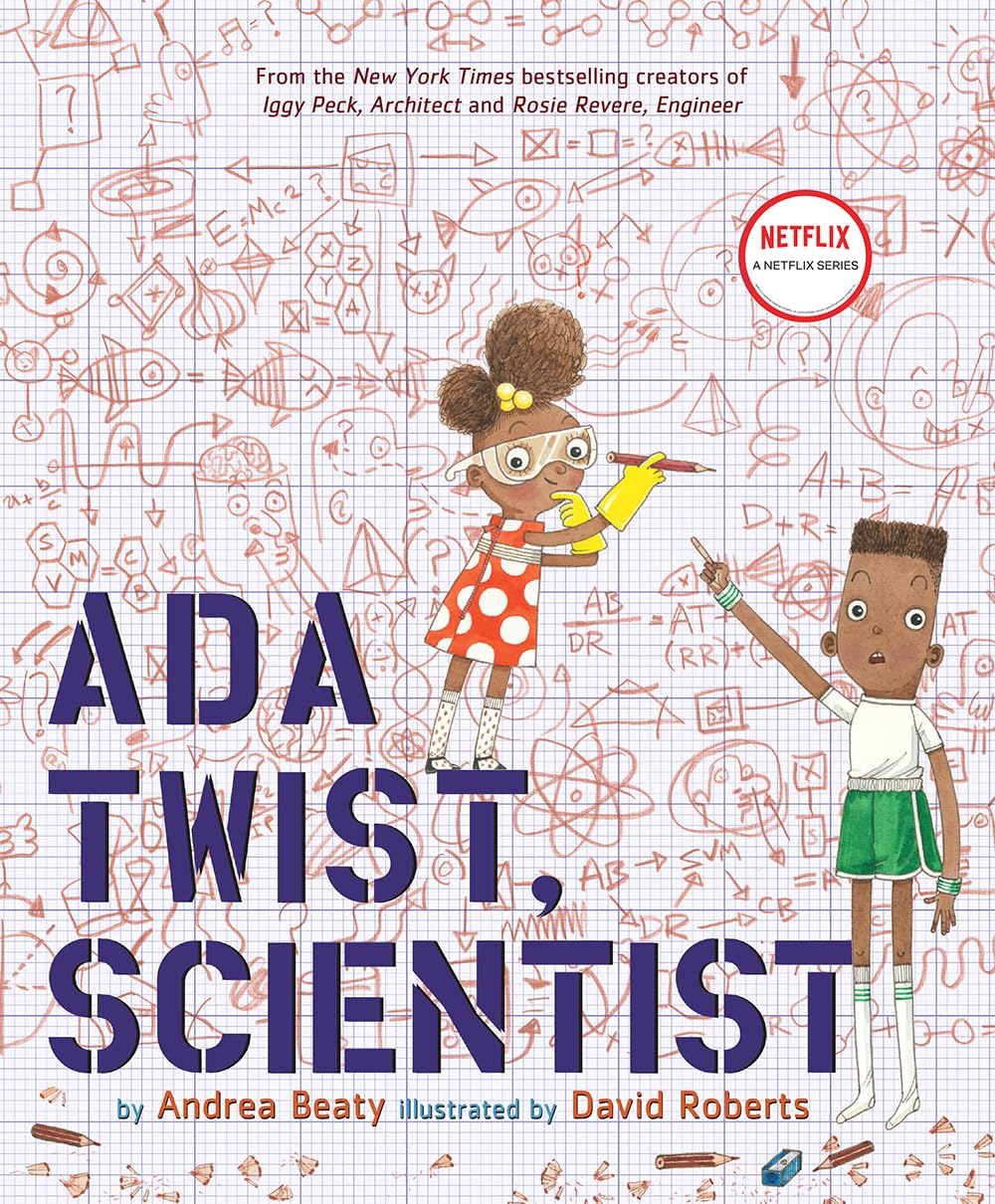
For the "I Can't Do It" moments -She's Got This.
Written by Olympic gymnast Laurie Hernandez, She's Got This has become a wonderful mantra when faced with challenging tasks. When a 4-year-old is learning to ride a bike and keeps falling, the encouraging chant,
"She's got this" just like Zoe in the book can make all the difference.
This story normalizes failure as part of learning, a message we could all use, regardless of gender or age.
I love how this book is all about chasing your dreams and never giving up.
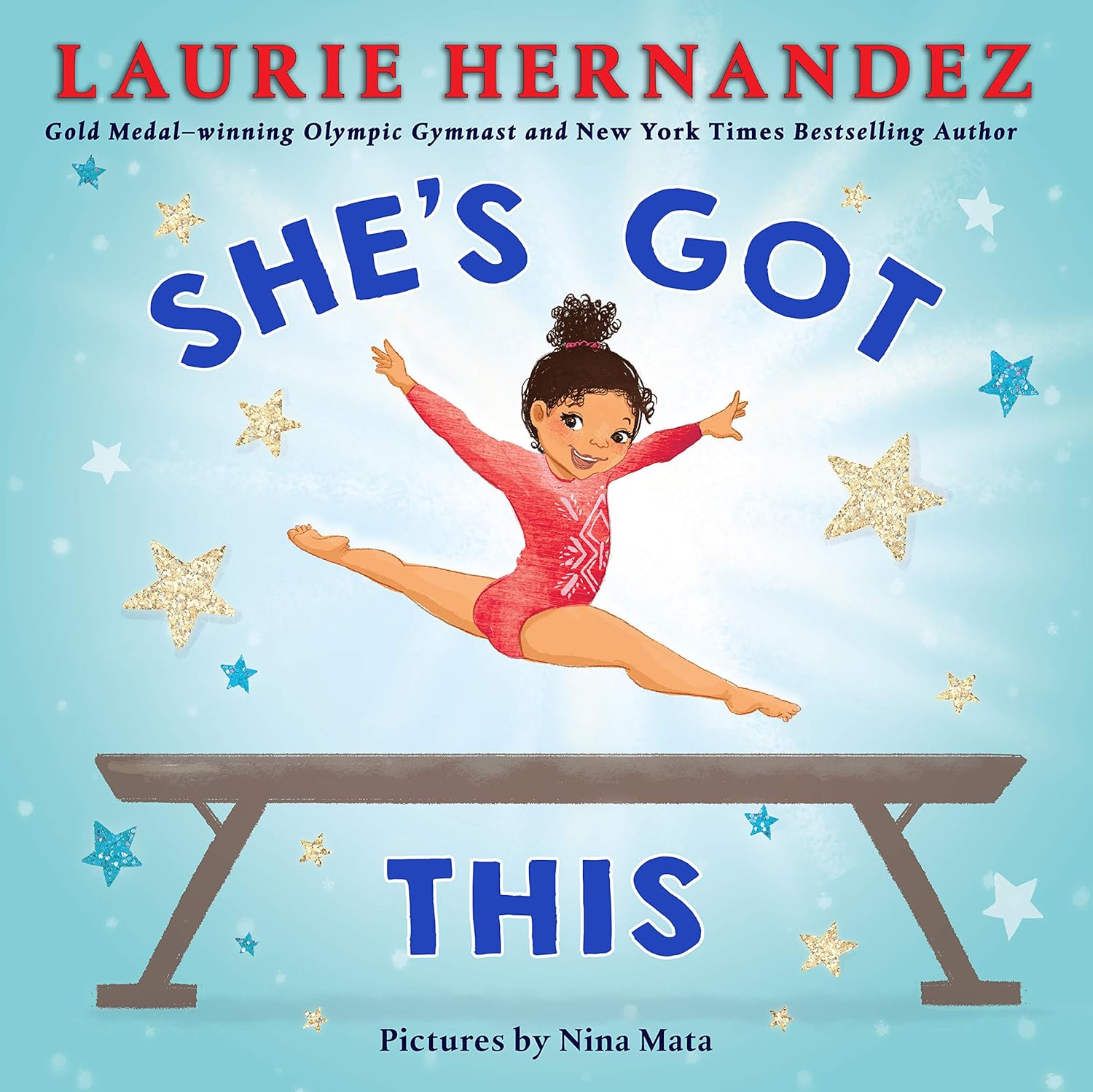
For the wild dreamers (Ages 5-6)
When the recycling bin becomes a treasure chest- Rosie Revere, Engineer book.
If your recycling bin mysteriously empties onto your living room floor regularly, Rosie Revere, Engineer by Andrea Beaty might explain why. Rosie's journey from hiding her inventions to celebrating her creative fails has been revolutionary in many households.
"Was that a fail or a first try?"
can become a response to broken LEGO structures and paper airplanes that nose-dive, changing how we talk about mistakes.
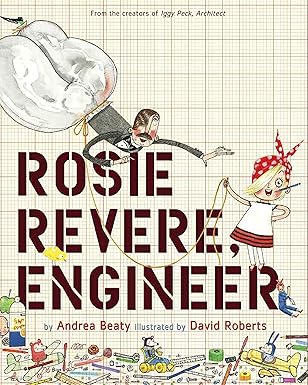
For the "When I Grow Up" conversations.
Grace for President
Election seasons on the TV can spark curiosity, and Grace for President by Kelly DiPucchio answers the "Can I be president?" questions with an emphatic "YES" Grace's campaign to become class president opens conversations about leadership, fairness, and using your voice.
Many children now "campaign" for extra dessert with surprisingly compelling arguments , a skill parents are simultaneously proud of and slightly concerned about.
For my UK parents, this book also provides an excellent opportunity to discuss how women have broken barriers in British politics, with the UK having had three female Prime Ministers (American has not had one female president) who have shaped the nation's history and inspired countless young girls to envision themselves in leadership roles regardless of their gender.
For the Big Dreamers (Ages 5-7)
When they ask, "What can I be when I grow up?" – Fantastically Great Women Who Worked Wonders
If your child is starting to think about their future and the possibilities ahead, Fantastically Great Women Who Worked Wonders by Kate Pankhurst is the perfect inspiration.
This beautifully illustrated book introduces young readers to incredible women who changed the world through their work,scientists, engineers, doctors, and more. From Rosalind Franklin, who helped discover DNA, to Junko Tabei, the first woman to climb Mount Everest, these stories show children that hard work, passion, and perseverance can lead to amazing achievements.
After reading, don’t be surprised if your little one starts dreaming up their own big ideas, whether it’s curing diseases, building rocket ships, or creating something brand new.
The next great innovator might just be sitting on your couch with this book in hand :)
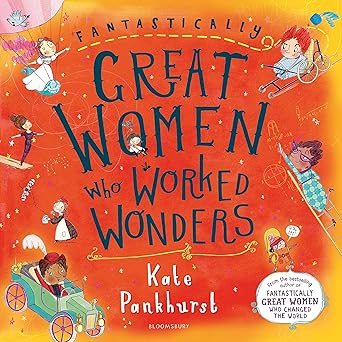
For the Justice Seekers (Ages 6-8)
When They Notice Life Isn't Always Fair. I Dissent
I Dissent-Ruth Bader Ginsburg Makes Her Mark by Debbie Levy introduces little ones to the concept of peaceful disagreement. When children notice that boys and girls are being treated differently, they might whisper, "I dissent" proving that these messages stick.
The book shows children that speaking up against unfairness is brave and necessary, even when it's hard.
It's important because sometimes having different ideas helps everyone learn new things or find better ways to do something. Brave people throughout history have dissented when they thought something wasn't fair, and that's how many good changes have happened in the world. Teaching our children to be brave to speak up is so important.
For Building Courage-Malala's Magic Pencil
Malala's Magic Pencil by Malala Yousafzai gently introduces children to the power of education and standing up for what's right. Many 7-year-olds are captivated by the idea that words could be stronger than fear.
After reading, children often create their own "magic pencil" drawings of how they'd change the world, from clean oceans to ice cream for dinner. It's lovely to see what they come up with.
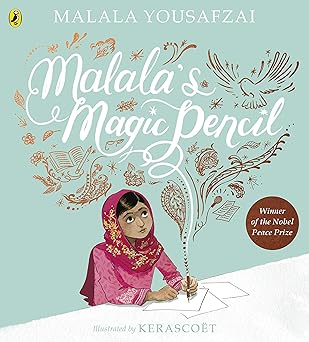
Little People, BIG DREAMS- Emmeline Parkhurst by Lisbeth Kaiser.
This explores the lives of outstanding people, from designers and artists to scientists and activists. All of them achieved incredible things, yet each began life as a child with a dream.
This book is all about Emmeline Pankhurst, a brave woman who had big dreams when she was little, just like your child. She saw that things weren't fair because women couldn't vote like men could.
Instead of just being quiet, Emmeline spoke up loudly and helped change the world. The colourful pictures show how she grew from a child with ideas into a grown-up who made a difference. You'll learn that even when people told her "no," she kept trying. This story shows that no matter how small you are now, your voice matters and you can do amazing things too if you believe in what's right.
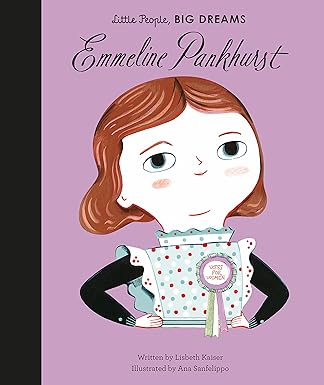
Why not help the books come alive and pair them with some simple activities.
Create superhero capes for "everyday heroes" like the women in these books
Set up a "voting booth" after reading Grace for President
Start a family "changes jar" where everyone can share things they'd like to improve in their lives
Look for other teachable moments.
"Who would you write to with your magic pencil?"
"What would you invent like Rosie?"
"How did Ada figure that out?"
These questions extend the stories into real life and show little ones that their thoughts really matter.
Keep it light and fun.
Remember, we're not giving lectures, we're sharing inspiring stories.
If your toddler only wants to point to Ruth Bader Ginsburg's glasses, that's okay. The seeds of these conversations are being planted even when it doesn't seem like it.
Raising little ones who see possibilities, not limitations.
International Women's Day isn't just about celebrating women ,it's about raising children who see a world full of possibilities.
These books help our little ones develop a positive sense of self by showing them characters who are brave, smart, creative, and kind.
Whether you have sons or daughters (or both), these stories open conversations about fairness, courage, and being true to yourself, qualities I am sure you all want for your children.
So grab a book, snuggle up, and watch as these stories spark questions, ideas, and maybe even a few world-changing plans.
After all, today's bedtime story listeners are tomorrow's world changers.
What books do you and your little ones love that feature strong characters?
Please share your favourites in the comments below, would love to know.